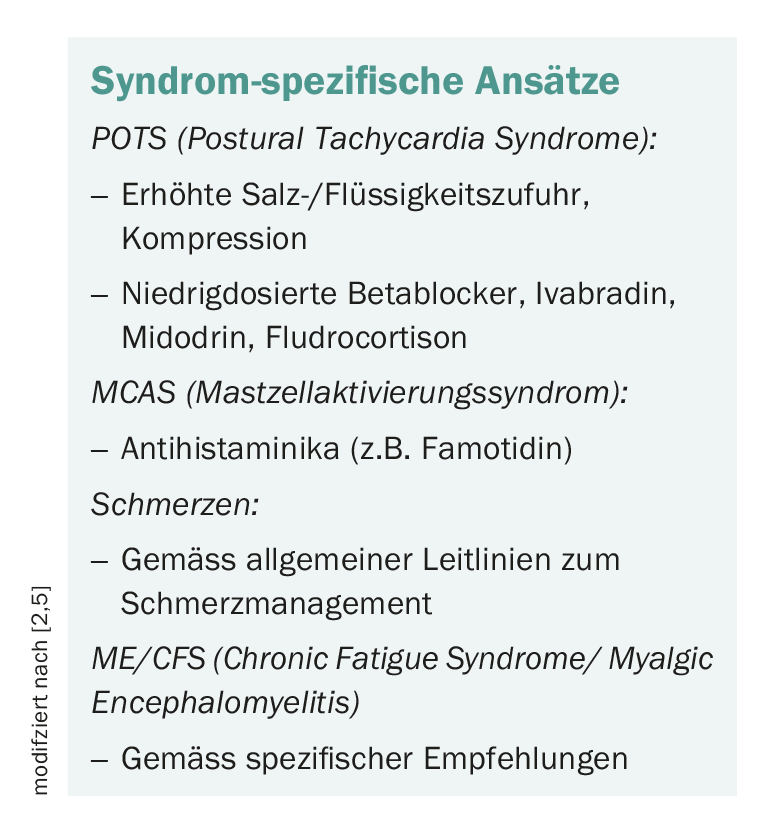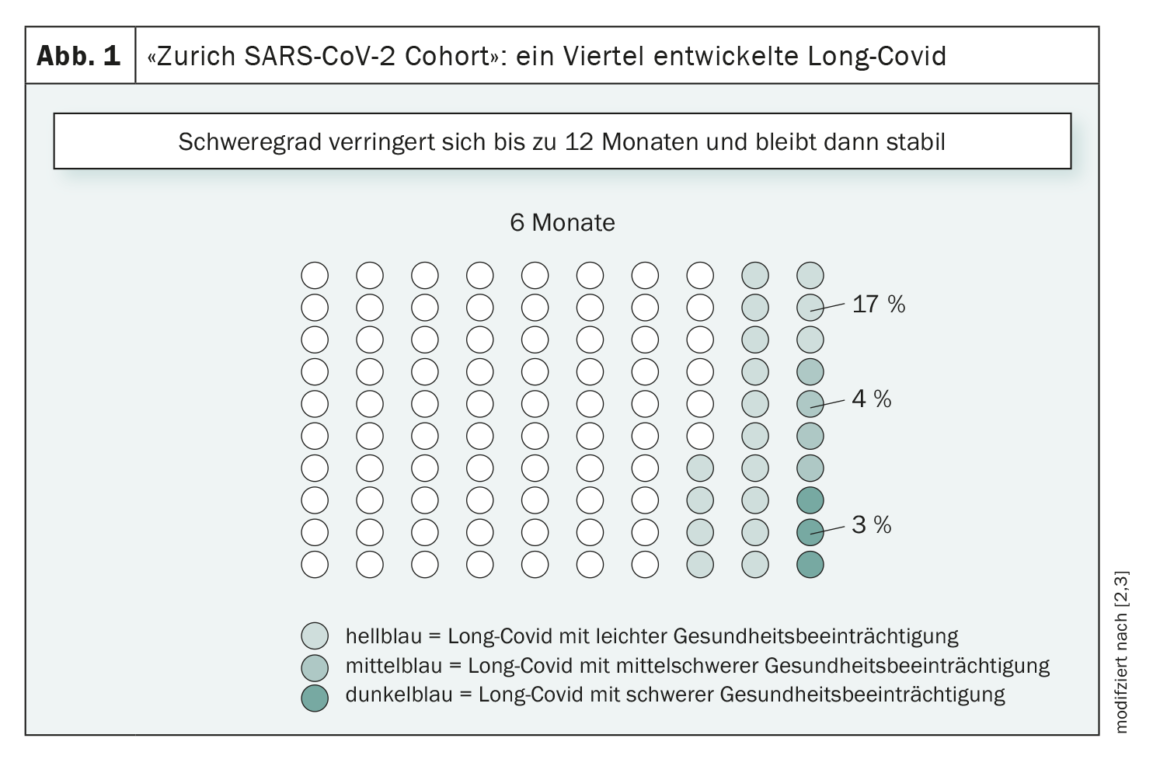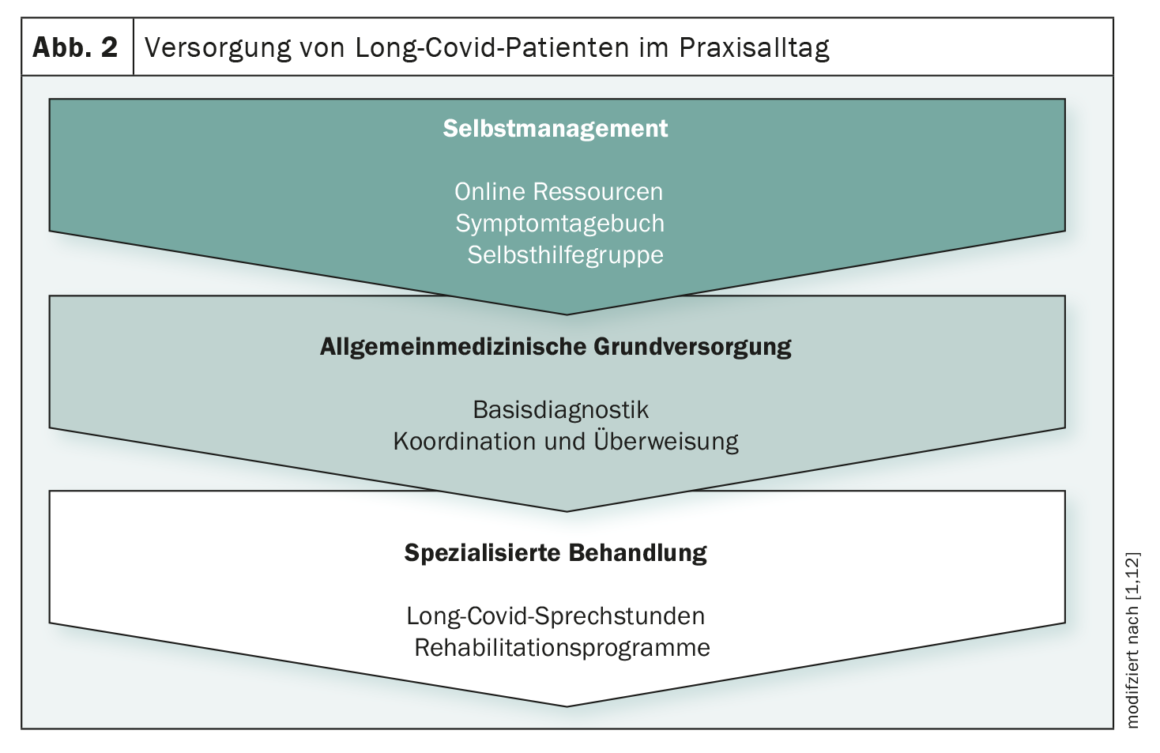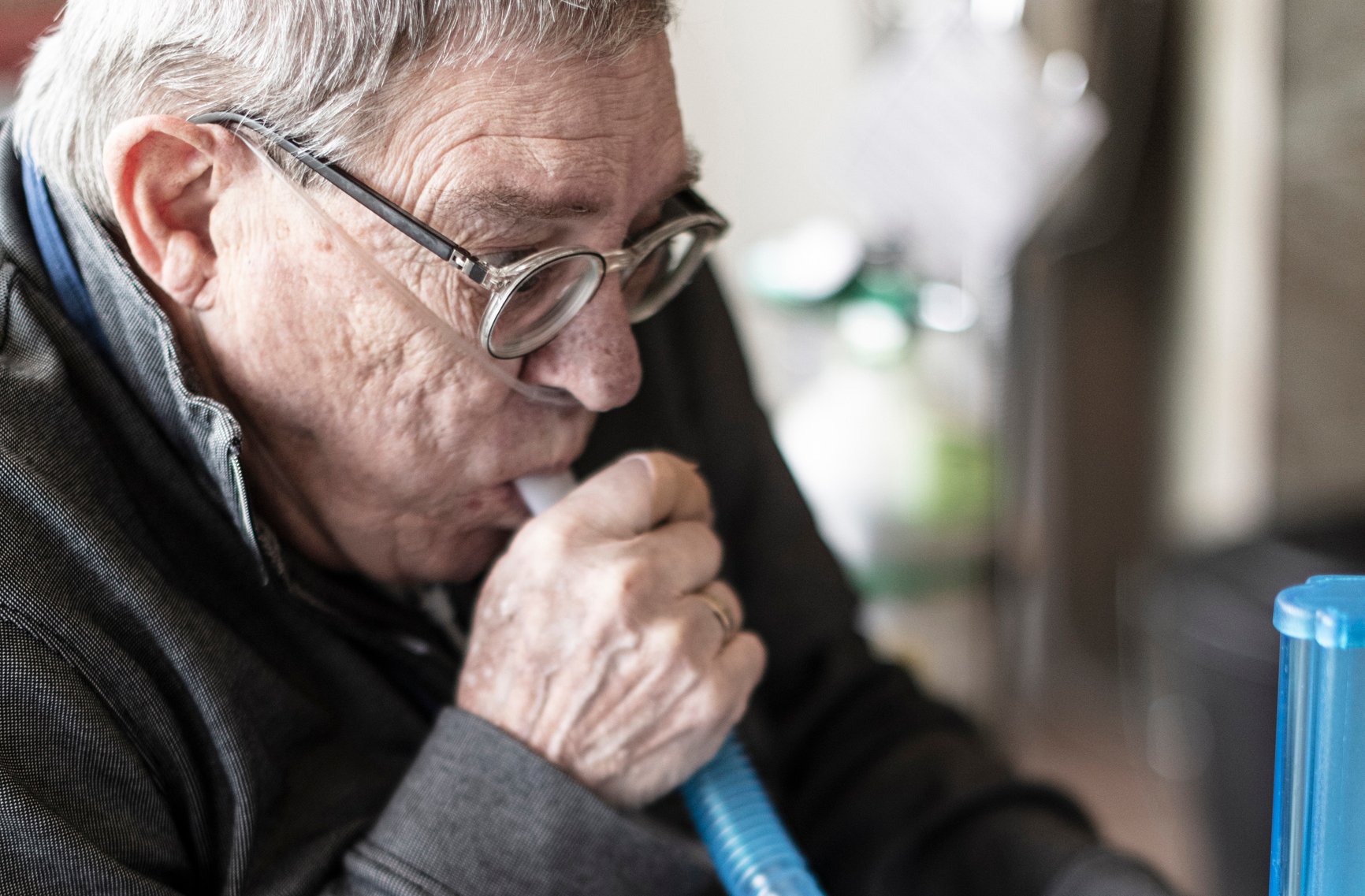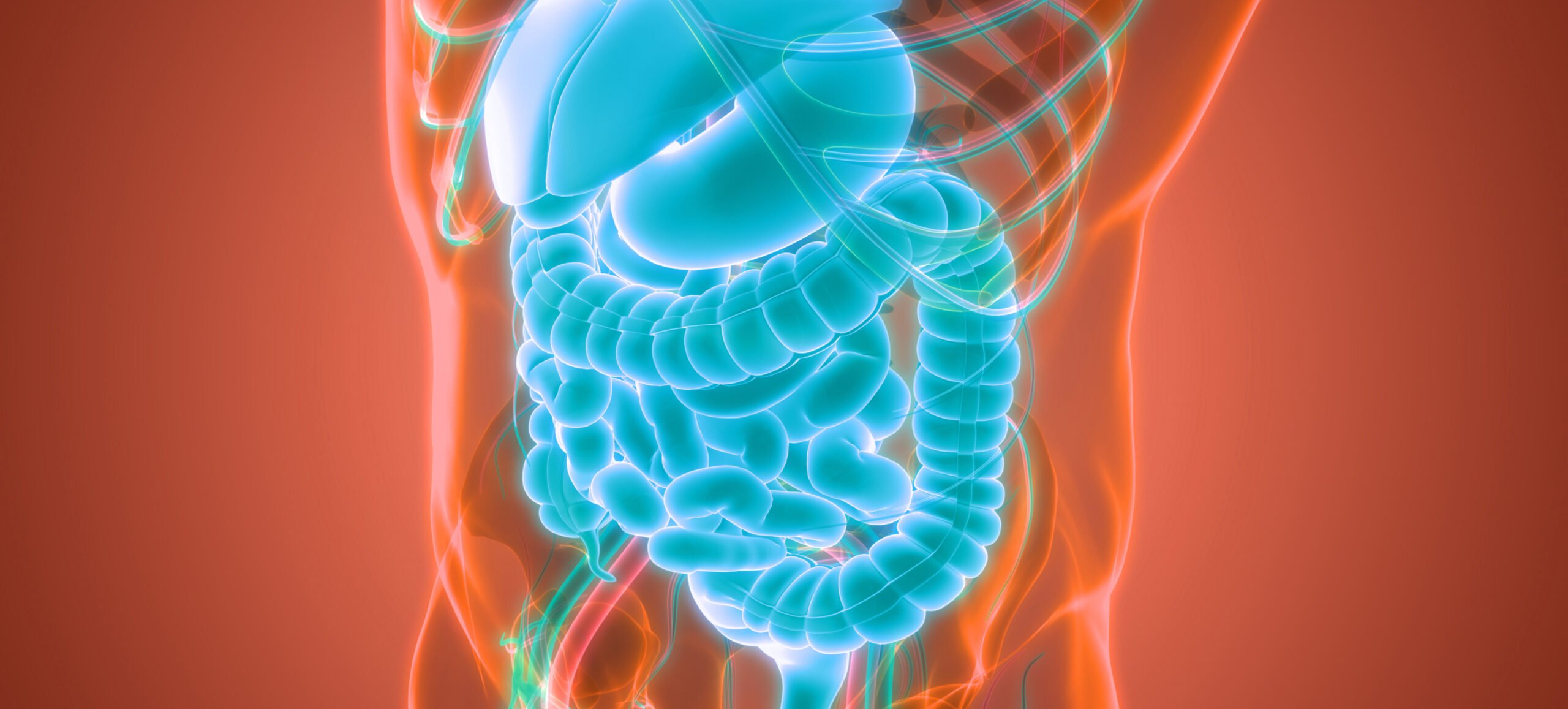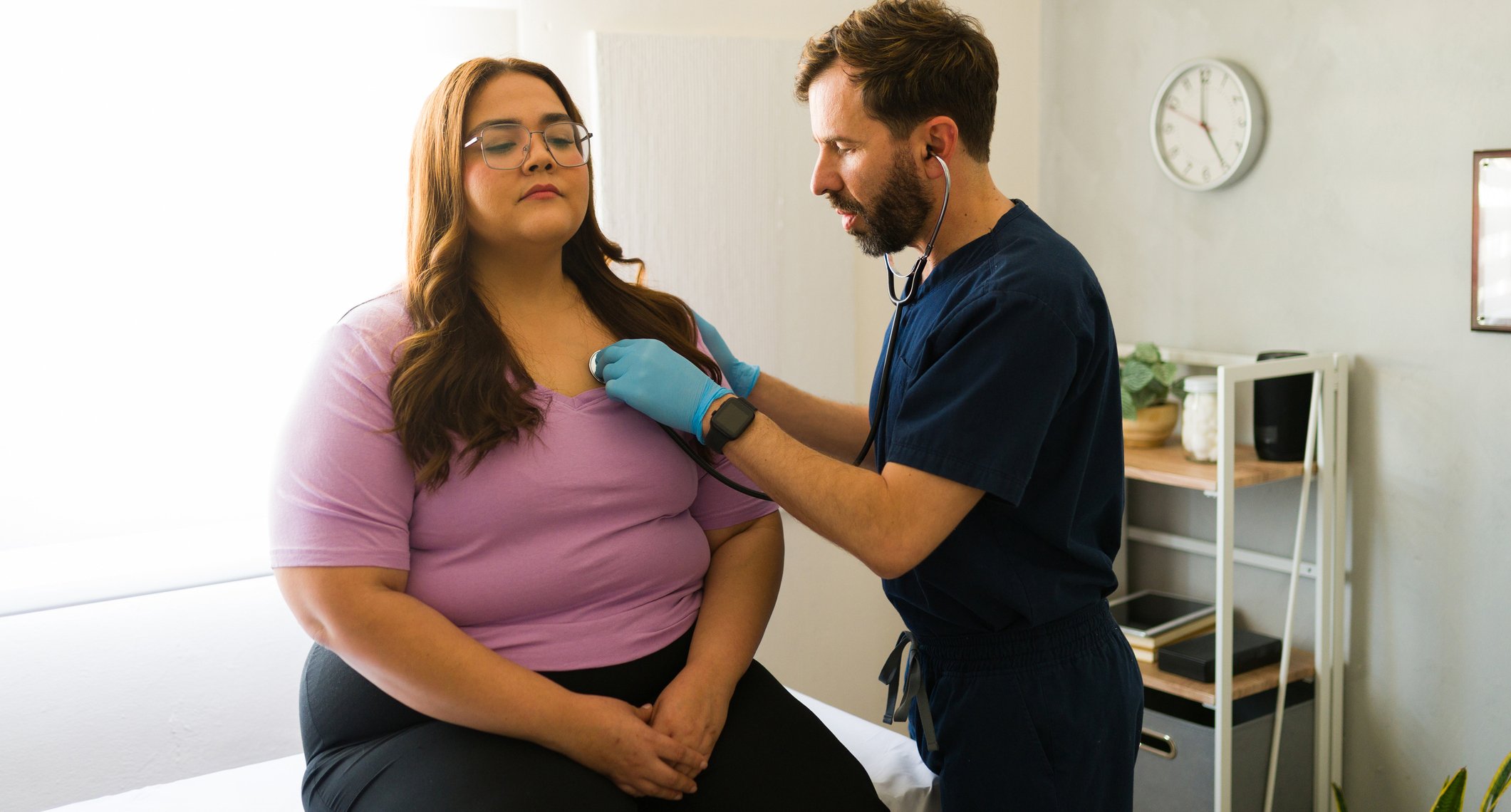In the Zurich Coronavirus Cohort Study, one in four participants reported persistent symptoms six months after SARS-CoV-2 infection. What are the underlying pathophysiological mechanisms of long-covid? Which treatment strategies are effective? While there are still many unanswered questions about long-covid, the body of knowledge is constantly expanding.
In October 2021, the World Health Organization (WHO) published the following definition of post-Covid 19 disease (synonymous: long-covid): when, after probable or confirmed SARS-CoV-2 infection-usually three months after the onset of Covid 19 disease-symptoms occur that persist for at least two months and cannot be explained by another diagnosis [1]. Dominik Menges, MD, MPH, postdoctoral researcher at the Institute of Epidemiology, Biostatistics, and Prevention (EPBI) at the University of Zurich explained that Long-Covid is mainly characterized by the following symptom clusters [2]: first, fatigue/post-exertional malaise (state of physical and mental exhaustion after minor physical and/or mental exertion), second, cognitive impairment (e.g., “brain fog”), and third, cardio-respiratory symptoms (e.g., dyspnea).e.g., “brain fog”), and third, cardio-respiratory symptoms (e.g., dyspnea).
Findings from cohort studies
The Zurich SARS-CoV-2 Cohort is a population-based prospective study examining individuals with laboratory-confirmed SARS-CoV-2 infection at various time points during their course [3]. The study is part of the Corona Immunitas research program coordinated by the Swiss School of Public Health (SSPH+) [4]. Based on data from 1543 SARS-CoV-2-infected individuals and 628 non-infected individuals, various analyses were performed [3]. In 49% of cases**, normal health was evident within 1 month of infection after resolution of acute covid disease, and in 18% (250/1416), remission occurred within 1 to 3 months. At 6 months post-infection, a proportion of 25%++ continued to have symptoms, which were mild in 17% of those affected and moderate or severe in 4% and 3%, respectively (Fig. 1) [3]. According to her observations, symptoms that persisted 12 months after infection remained relatively stable as the disease progressed, Dr. Menges said. As corresponding investigations showed, the ability to work of the persons concerned was in many cases considerably impaired.
** 699/1416 study participants (missing data: n=127).
++ 348/1418 study participants (missing data: n=125)
| Numerous studies show that vaccination significantly reduces the risk of long-covid [2,10]. Furthermore, there is good evidence that the omicron variant is associated with a lower risk of developing long-covid disease than, for example, the alpha variant of SARS-CoV-2 [11]. However, there are also isolated cases of long covid among vaccinated individuals who had contracted the omicron variant, according to Dominik Menges, MD, of the EBPI at UZH [2]. |
What is known about the pathogenesis
Regarding the pathogenesis of long-covid, a variety of factors are thought to interact, including immune dysregulation and chronic inflammatory processes, persistence of viruses or viral components, direct tissue/organ damage, disturbances of the microbiota, autoimmune responses, microvascular thrombi, and neurologic pathologies. The immunologic features associated with Long-Covid have been described by Davis et al. summarized in a review article published in 2023 [5]. Among other things, it cites the findings of a study in which patients with persistent covid symptoms 14 months after SARS-CoV-2 infection had an increase in IL4- and IL6-secreting CD4+ T cells, a decreased number of conventional dendritic cells, and low cortisol levels compared with a group without long-covid symptoms and with noninfected individuals [6]. The speaker reported that there are studies indicating that an atopic disposition is associated with a higher risk of developing long-covid.
Broad spectrum of experimental therapies
Treatment options for Long-Covid are being investigated in numerous research projects. To date, no curative therapies exist, but there are several strategies and medications that can lead to symptom relief. According to a review article by Fawzy et al. 2023 trials are currently investigating over 400 drug and non-drug interventions [7]. Dr. Menges highlights anti-inflammatory approaches (e.g., colchicine, NSAIDs) as well as specific immunotherapies that target specific signaling pathways. In addition, there are experimental new agents such as paxlovid, RSLV-132 and BC 007. Paxlovide showed good effects in some observational studies, but results from RCTs are currently pending, the speaker said. Some patients benefit from antihistamines, the leukotriene receptor antagonist montelukast, or deupirfenidone – an antifibrotic and anti-inflammatory agent. In patients with microthrombi, the use of anticoagulants may be useful, and in neurologic symptoms, improvement could be achieved with psychostimulants or antidepressants.
Care for Long Covid sufferers
In summary, unfortunately, there is currently no solid evidence from clinical randomized-controlled therapy trials, Dr. Menges said. However, he said, this does not mean that there are no strategies for treating long-covid patients. In this context, the speaker referred to international guidelines with recommendations on the management of long-covid, such as the German S1 guideline “Long/Post-COVID” or the British NICE guideline [8,9]. For patients who have only mild symptoms, self-management measures may be sufficient. Others need primary care in general medicine and treatment from specialized Long Covid centers when appropriate. To deal with Post-Exertional Malaise, we know from studies in other pathologies that energy management is an important component. In this context, for example, the “4-P strategy” has proven its worth: Prioritize (“Prioritize”), Plan (“Plan”), Pause regularly (“Pause regularly”), Stay positive (“Stay positive”). Patients should be helped to set realistic goals and expectations and build on existing resources, the speaker explained. It is also important to have a context in which shared decision making is possible. A collection of other tips for dealing with Long Covid disease is available on the Altea Network website [13]: https://altea-network.com
Congress: SGAI Allergy & Immunology Update
Literature:
- “A clinical case definition of post COVID-19 condition by a Delphi consensus,” 6 October 2021, www.who.int/publications/i/item/WHO-2019-nCoV-Post_COVID-19_condition-Clinical_case_definition-2021.1,(last accessed 04 April 2023).
- “Long-Covid: New Data,” Dominik Menges, MD, Allergy & Immunology Update, Jan. 27-29, 2023.
- Ballouz T, et al: Natural course of post COVID-19 condition and implications for trial design and outcome selection: A population-based longitudinal cohort study. www.zora.uzh.ch/id/eprint/226012/1/2022.06.22.22276746.full_
ballouz_naturalcourse.pdf, (last accessed 04.04.2023). - Menges D, et al: Estimating the burden of post-COVID-19 syndrome in a population-based cohort study of SARS-CoV-2 infected individuals: implications for healthcare service planning, https://www.medrxiv.org/content/10.1101/2021.02.27.21252572v1,(last accessed 04.04.2023).
- Davis HE, et al: Long COVID: major findings, mechanisms and recommendations. Nat Rev Microbiol 2023; 21(3): 133-146.
- Klein J, et al: Distinguishing features of Long COVID identified through immune profiling. medRxiv [Preprint] 2022 Aug 10: 2022.08.09.22278592. doi: 10.1101/2022.08.09.22278592
- Fawzy NA, et al: A systematic review of trials currently investigating therapeutic modalities for post-acute COVID-19 syndrome and registered on WHO International Clinical Trials Platform. Clin Microbiol Infect 2023 Jan 13: S1198-743X(23)00009-5. doi: 10.1016/j.cmi.2023.01.007.
- “S1 Guideline Long/ Post-COVID – Living Guideline.” Registration number 020-027, version 2.0 (as of 08/17/2022), https://register.awmf.org,(last accessed 04/04/2023).
- Venkatesan P. NICE guideline on long COVID. Lancet Respir Med 2021 Feb; 9(2): 129.
- Azzolini E, et al: Association Between BNT162b2 Vaccination and Long COVID After Infections Not Requiring Hospitalization in Health Care Workers. JAMA 2022; 328(7): 676-678.
- Hernández-Aceituno A, García-Hernández A, Larumbe-Zabala E: COVID-19 long-term sequelae: Omicron versus Alpha and Delta variants. Infect Dis Now 2023 Feb 27: 104688. doi: 10.1016/j.idnow.2023.
- Greenhalgh T, et al: Long covid-an update for primary care. BMJ 2022 Sep 22; 378: e072117.
- Altea: Long Covid Network, https://altea-network.com,(last accessed 04.04.2023).
InFo ONCOLOGY & HEMATOLOGY 2023; 11(2): 38-39.
HAUSARZT PRAXIS 2023; 18(4): 43-44


